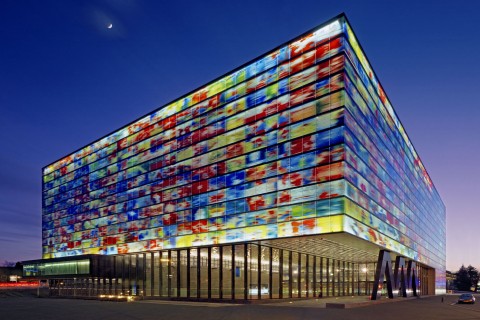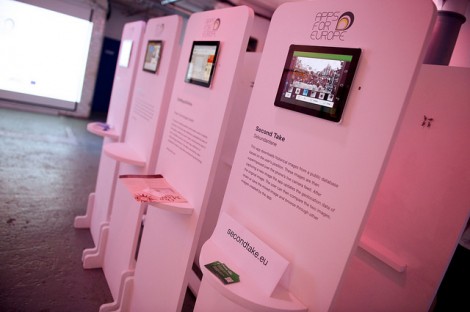|
Digital meets Culture https://www.digitalmeetsculture.net/article/creating-value-from-open-cultural-data/ Export date: Sat Feb 21 17:21:23 2026 / +0000 GMT |
Creating value from (open) cultural data The Netherlands Institute for Sound and Vision (‘Nederlands Instituut voor Beeld en Geluid'), in short NISV, is a cultural-historical organization of national interest, collecting, preserving and opening the audiovisual heritage for as many users as possible: media professionals, education, science and the general public. In addition, the institute develops and disseminates knowledge in the area of audiovisual archiving, digitization and media history. Sound and Vision (‘Beeld en Geluid') has one of the largest audiovisual archives in Europe. The institute manages over 70 percent of the Dutch audiovisual heritage. NISV has been involved in many research projects aimed at fostering and understanding the impact of opening cultural heritage collections to creative reuse. A blogpost recently appeared in the NISV website tells a brief history and the experience of NISV in this field.  source Apps for Europe (CC BY 2.0). "As a publicly funded national archive for Dutch audiovisual heritage, we believe allowing (creative) reuse of our collections - when copyright allows - enables innovative applications based on our shared cultural wealth and contributes to a bigger, more diverse and - sometimes - more meaningful reach of these collections", writes Maarten Brinkerink, main author of the post. Through recent projects such as Apps4Europe, Europeana Creative and more recently Europeana Space, NISV is trying to cooperate to leverage on the availability of digital cultural content for creating value and, possibly, concrete business opportunities for both content providers and creative industry. The concept of hackathons intends to do more than developing new codes or new software, as it was originally conceived; it intends to have two worlds (the developers and the content providers) talking eachother, and doing things together for addressing investors, although "investors are mostly interested in innovative concepts. The reuse of open cultural data and content is not often an (important) criteria for them, let alone a unique selling point." The innovative incubation process put in place in Europeana Space is more focused on business models rather than on technical innovation: "First the generation of innovative concepts is supported through a hackathon, then the most promising concepts are supported through a business modeling workshop (focussing on the concept design and market value proposition) and finally one concept is picked selected for a business incubation trajectory. While the concept creation is based on open cultural data and content reuse, the quality of the concept put forward by the participants their previous experience, drive and market savviness are equally - if not more - important." But the very crucial question of the whole matter is: does open content generate real benefits? is opennes the key for making money from (digital) cultural heritage? The experience of NISV tells that "there is still very limited ‘hard' proof that the reuse of open cultural data and content leads to the generation of economic value", instead "value increase that can be easily observed are of a more social nature, like greater and more diverse access to culture, meaningful contextualization of cultural resources leading to new and open knowledge, new forms of creativity and new and/or stronger relations between the creative industries, cultural institutions and their audiences." Which is certainly a fertile and promising environment to generate new services, such data aggregation, data enrichment, data analysis, which can emerge from concepts based on open cultural data and content. Read the whole article here. |